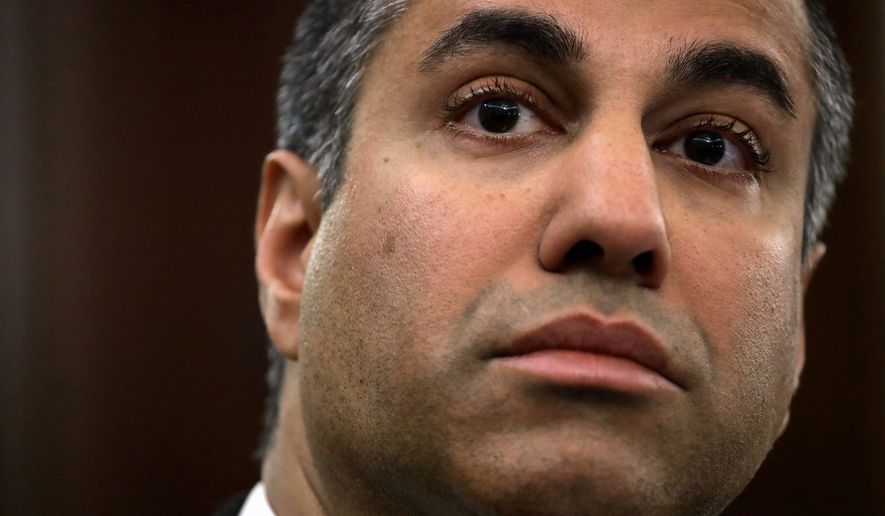Senate Republicans are setting up a deadlocked Federal Communications Commission for presumed President-elect Joseph R. Biden.
The standoff in the FCC would help give the GOP a say in crafting social media regulation and 5G policies during a Democratic administration.
The Senate Committee on Commerce, Science and Transportation will vote Wednesday to advance President Trump’s FCC nominee, Nathan Simington, setting up a 2-2 split when FCC chair Ajit Pai exits and Mr. Biden takes office Jan. 20.
Mr. Pai said he would leave office on Inauguration Day ahead of the end of his term, which will cost Big Tech critics an ally in curtailing legal liability protections for social media platforms.
As chair, Mr. Pai launched a review of liability protection, known as Section 230. He also implemented 5G policy and led the repeal of Obama-era “net neutrality” regulations that expanded government oversight of internet service providers.
In Mr. Pai’s absence, control of the FCC will flip to a Democratic 2-1 majority unless Senate Republicans confirm Mr. Simington to fill a Republican seat on the commission.
If Democrats have a 2-1 majority when Mr. Biden is expected to take office, his administration could move very quickly to implement its agenda.
Keeping the 2-2 split, however, will stave off, at least temporarily, Mr. Biden from taking control of the FCC.
“I think a lot of folks are waiting with bated breath to see a lot about what plays out in the FCC, in particular, who the new chair is going to be; if the Republicans are able to get their currently vacant seat filled,” said Gus Hurwitz, the director of the Nebraska Governance and Technology Center.
Mr. Pai’s January exit will provide Mr. Biden the opportunity to move more quickly to install a new head of the FCC. Mr. Biden has tapped John Williams, a senior counsel on the House Judiciary Committee, to lead the Biden team’s review of the FCC and chart the path forward for the agency.
While a Biden administration may want to move quickly to advance its agenda, undoing the Trump administration’s policies may dominate its early work.
“Any change substantively in policy will probably be incremental and somewhat slow-moving through the FCC because so much stuff has already been put into motion,” Mr. Hurwitz said. “It will take going through the rule making process in order to change what’s already in motion.”
• Ryan Lovelace can be reached at rlovelace@washingtontimes.com.




Please read our comment policy before commenting.